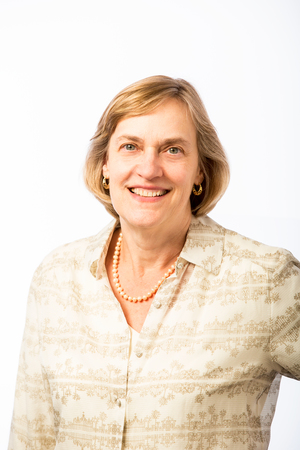The idea for the Center for Financial Inclusion emerged within ACCION about a year ago. As you probably know, ACCION has been promoting the commercial model of microfinance ever since it created BancoSol in 1992. You might know that back then Maria Otero and I worked together to lay out a vision – we called it the Financial Systems Approach – for how microfinance could become part of the mainstream financial system. That vision has far exceeded our dreams.
Last year, the Compartamos IPO felt like a culmination of the vision in many ways. It was a strong validation of microfinance by the international markets. It was also a wake-up call on some of the thorny issues facing the field. The momentum is strong now for commercial microfinance. The financial crisis of the past week may interrupt that momentum, but microfinance is sound, and as markets recover they will stay with it. In the new environment we saw a need to take up a renewed focus: ensuring that the mission side remains an integral part of microfinance, even as the baton passes to more private sector players.
We hired Community Wealth Ventures, a consulting firm that assists nonprofit leaders to launch strategic ventures, helped us develop our thoughts about the Center and put them down on paper. Their enthusiasm and advice got us started, and we thank them heartily.
The Center’s mission statement involves a lot of my personal convictions:
The Center for Financial Inclusion is dedicated to the proposition that low income people deserve high quality financial services delivered through commercial models that incorporate social purpose.
The first few words are about financial inclusion. It is no longer just microloans for microenterprises, provided by specialized microfinance institutions. We crossed that bridge some time ago, but still have trouble getting beyond those roots.
More important, microfinance has focused so much on client numbers that quality has not received its due. What I mean by quality is that customers receive a full range of services, delivered in a responsible and customer-friendly way, at an affordable price.
The second part of the mission refers to commercial providers incorporating social purpose. The Center welcomes anyone who pursues a double bottom line, be they non-profits or banks. I feel despair about the way greed was allowed to run rampant in the U.S. financial sector, and I believe we are lost if we don’t incorporate social purpose more explicitly into business.
Inclusive finance has great potential to demonstrate how this can be done.
For these reasons, consumer protection is emerging as the first major new area for the Center. We are working across the industry to launch an awareness raising campaign for consumer protection in microfinance. Stay tuned for more.
Which brings up the collaborative working model of the Center. For solving industry-wide challenges nothing is better than assembling small groups of people around burning issues. That’s how we intend to work. Some groups are at it already, including a terrific Advisory Council. And we have an energetic staff who are creating an atmosphere of fun and provocation, making the Center a place where ideas can be put forward and challenged.
Before we started we wondered whether people would trust the Center as working on behalf of the industry at large, without a separate ACCION agenda. I’ve been delighted at the warm reception the Center has received so far. If you have lingering doubts about the independence of the Center, I ask you to give us a chance to prove ourselves, and then hold us to our word.
Creating the Center is a homecoming of sorts for me. I’ve always thought in terms of the industry as a whole. Thanks to ACCION for giving me this opportunity. The Center certainly shares ACCION’s philosophy regarding commercial microfinance, and it will benefit greatly from ACCION’s support. But the intent is to serve the industry as a whole, working with all players – inclusively.










